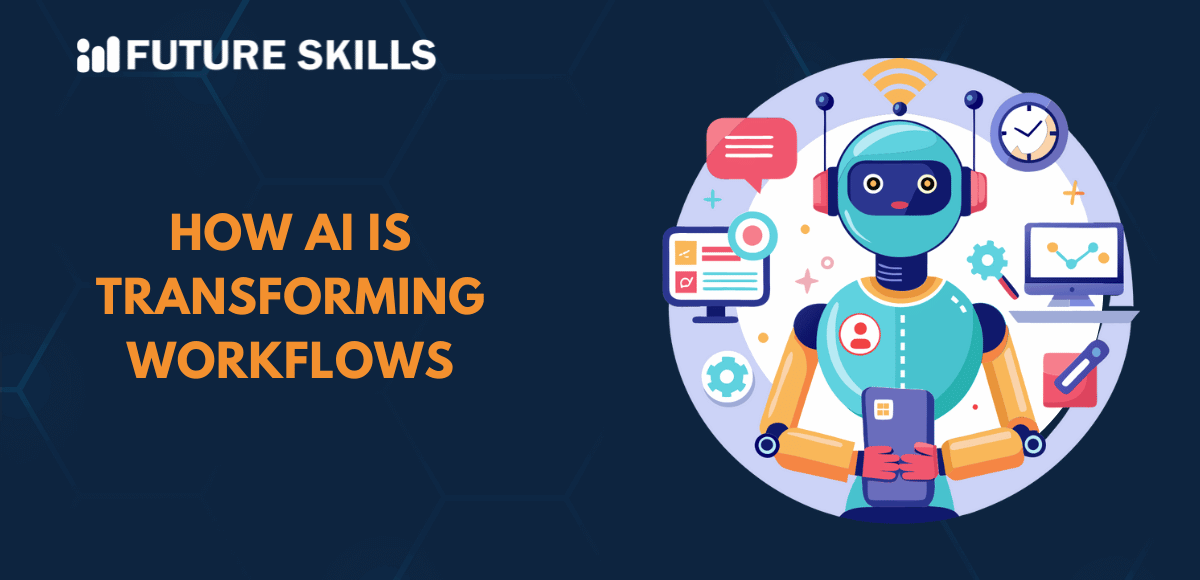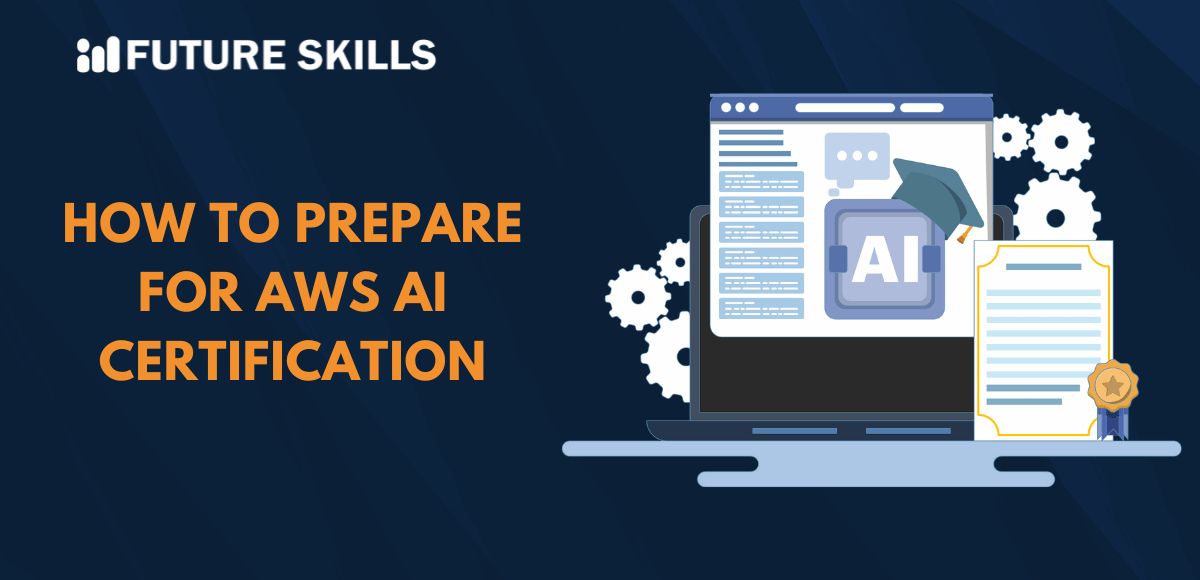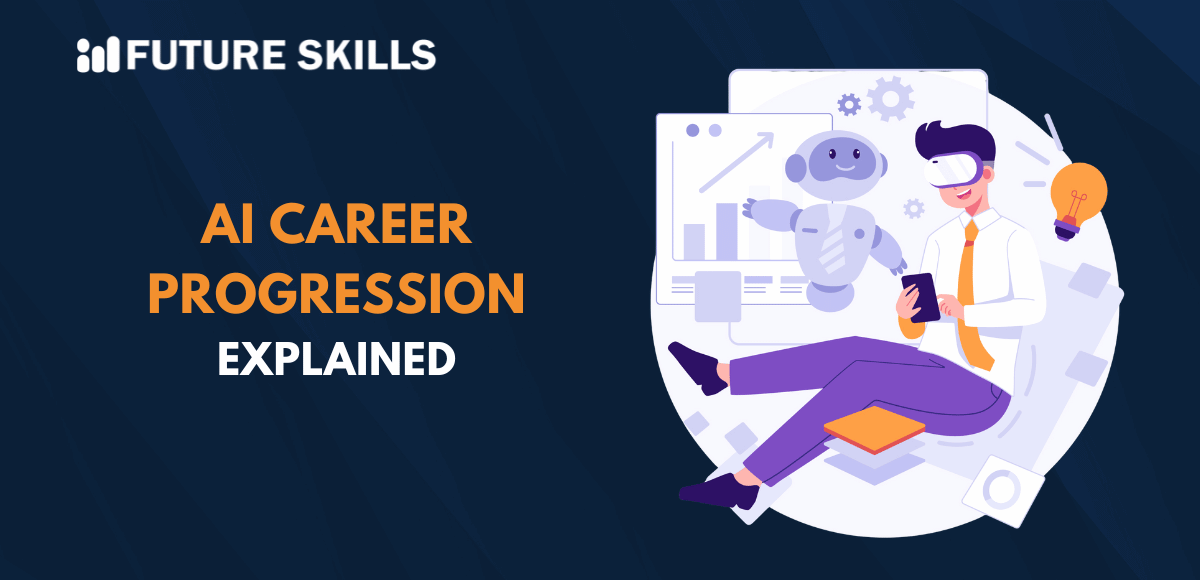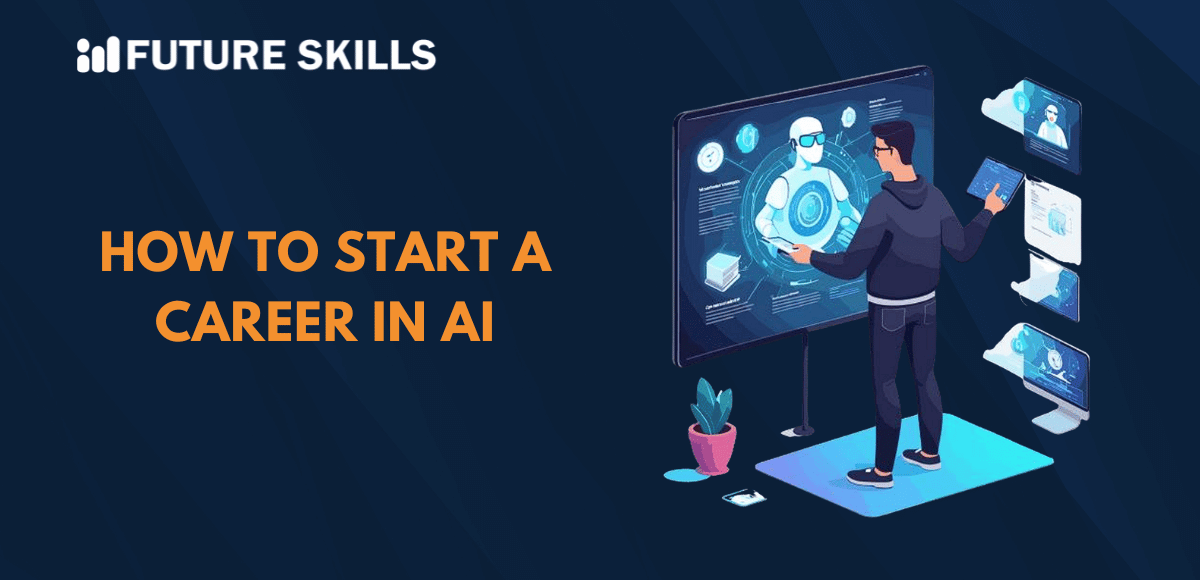Repetitive manual tasks have always been a major roadblock for agility and innovation in business. Businesses embraced digital transformation by automating most of the manual tasks. Questions like ‘How to use AI to automate a process?’ became quite common as businesses adopted AI in their workflows.
At the same time, concerns regarding AI displacing human workers from their jobs also attracted the limelight. It is important to note that AI transforms human workflows and augments the workforce with its capabilities. Let us discover how augmentation takes priority over automation in the use of AI for transforming human workflows.
Build your AI skills and become a professional in just four weeks with our accredited AI Certification Course. Enroll today!
Understanding the Effect of Workflow Automation with AI
Artificial intelligence offered a promising tool for workflow automation in HR, talent management, and talent acquisition processes. Intelligent automation opened new opportunities for streamlining and scaling decision-making efforts across various organizations. The most common explanation for AI workflow automation describes it as the use of artificial intelligence to optimize repetitive manual tasks. Some of the common examples of using AI for automation of manual workflows have been noted in the HR department.
AI automation can help talent acquisition executives with automation of manual tasks and reducing bottlenecks. Automation can have a significant impact on human workflow in the HR department in the following areas,
- Coordination of interview availability.
- Scheduling and calendar management.
- Automated follow-up emails and updates about hiring status.
- Reviewing resumes and filtering the list of initial candidates.
- Collecting and arranging candidate information in specific formats.
Workflow automation with artificial intelligence is also applicable to other departments of an organization. The most important goal of using AI to automate human workflows focuses on increasing efficiency in business processes. In addition, automation also focuses on optimizing overall business outcomes like hiring. Many people believe that using artificial intelligence for workflow automation is a strategic decision to improve competitive advantage. On the other hand, it is a type of transformative approach that can reshape the ways in which teams work.
Benefits of Workflow Automation with AI
You can discover the actual purpose of workflow automation with AI for an organization by learning about its benefits. Workflow automation with artificial intelligence helps in streamlining routine actions to optimize the efficiency of an organization. The following benefits of automation with AI can offer a clear explanation of its importance in the world of business.
-
Enhancing Efficiency
The foremost benefit of introducing AI in human workflow revolves around improving efficiency across different teams in an organization. Data-based algorithms can help in improving AI workflows that could automate the time-consuming responsibilities of employees. It would help teams focus more on creative and strategic tasks that have a direct effect on the organization’s goals.
-
Accurate Data Analytics and Reporting
The use of artificial intelligence in workflow automation can support simpler data collection and analysis, thereby offering more accuracy in reporting. Comprehensive data analytics and reporting with accuracy helps in evaluation of business impact and arriving at important decisions. It is important to note that 4 out of 10 tech firms use AI to improve their data analytics capabilities. The applications of AI-powered data analytics prove that AI automation is not a futuristic concept anymore and has become standard practice.
-
Reduction in Human Error
One of the most common aspects of using AI to transform human workflows with automation is the emphasis on human error. The use of AI in automation of human workflows helps in achieving significant reductions in human errors. You can assume the example of AI workflow tools used to simplify the repetitive data entry processes to understand the different ways in which automation reduces human error. Artificial intelligence can reduce human errors in data entry tasks that would enhance productivity and quality of work alongside reducing the use of resources and time.
-
Lower Costs
The impact of artificial intelligence on workflow automation would also point at reduction of operational costs through employee productivity enhancements. As a matter of fact, AI-powered automation can improve employee productivity by almost 66%. Automation of repetitive tasks reduces the dependency on time-intensive processes that require manual labor. It would lead to effective allocation of resources in different processes such as talent acquisition, recruitment and talent management.
Find out about the top industries using AI in their operations and utilizing the full potential of AI to enhance their efficiency.
Why Do You Have to Think about Augmentation?
The shift from automation to augmentation in the use of AI for transforming workflows was an event waiting to happen. It is important to think about AI augmentation as business leaders perceive various limitations of automation as a reason to invest in AI. Most of the business leaders know about the impressive wonders that they can achieve with AI technologies. At the same time, they are also worried about the next steps after AI chatbots and copilots.
Business leaders can make better decisions about adoption of AI when they know about the technological applications that can augment human workers. Augmentation is a better option than automation with the use of AI, due to the various constraints on automation. The three prominent constraints on AI-powered automation include integration constraint, economic constraint, and engineering constraint.
Automation is more difficult in processes that depend on interfacing with different systems. Business leaders also consider the engineering constraint for AI-powered automation as less structured processes are harder to automate. Another notable constraint for adoption of AI-powered workflow automation is the economic constraint of uniqueness. A specific workflow must be sufficiently repeatable to ensure that its automation would be economically feasible.
Unraveling the Importance of Transition to Augmentation
Artificial intelligence is the powerhouse of innovation for different industries. On the other hand, the automation of various business processes driven by AI technologies has created concerns for human workflows. Employees are consistently worried about the assurance of long-term job security with around 27% of jobs at high risk of complete automation. The only way to alleviate such concerns of workers is to create augmented workforces rather than displacing them with automation.
You may come across queries like ‘How to use AI to automate a process?’ when companies want to adopt AI. The same companies are also struggling to identify potential use cases for automation of human workflows with artificial intelligence. Interestingly, businesses can take advantage of AI and achieve success by thinking about how AI would augment the workflow of each employee.
Learn how to use AI and generative AI skills to enhance your career with our AI for Everyone Free Course.
Discovering the Significance of Augmentation with AI
The concept of workflow augmentation with AI represents a synergetic relationship between human workers and machines. Augmentation can strengthen the impact of AI on human workflows by enabling human workers to leverage AI systems to achieve better results than working alone. It is important to note that organizations that have used AI to create augmented workforces have achieved major changes.
The impact of AI on the human workflow in organizations was primarily believed to be about full automation. The truth is, most of the companies don’t perceive full automation as their goals with the adoption of AI technologies. Most of the workers have roles in which only one-third of their workflows can be automated.
As the focus shifts away from automation towards augmentation, the question about the impact of AI on human workflow becomes more pertinent. Augmentation of human workflows with AI can create new career paths and redefine the roles and responsibilities of human workers.
Benefits of Workflow Augmentation with AI
The ideal approach to determine how AI can encourage augmentation of human workflows rather than automation would involve an overview of the benefits of augmented workforce. The following areas showcase how AI can transform human workflows and unlock the full potential of employees.
-
Achieving Efficiency through Automation
The introduction of AI in human workflow primarily involves automation of routine and redundant tasks. It helps employees focus on tasks that require human intervention along with creative and strategic skills. You can notice that AI augments the workforce by empowering them with insights from complex data that helps in looking at the bigger picture.
-
Easier Recruitment and Onboarding
Artificial intelligence has made the job of HR professionals a lot simpler with the help of augmentation. AI can help HR executives scan job applications to identify the right candidates for a role. The workflow of HR professionals is simplified further with the use of AI to generate job descriptions by using simple prompts.
-
Transformation of the Employee Experience
The most crucial effect of AI-powered augmentation on the human workflow would be visible in the transformation of employee experiences. AI can recommend training options and learning paths tailored to the needs of an employee. In addition, AI can also enhance the human workflow by adjusting shift patterns according to the preferences of individual employees. Most important of all, AI can browse through massive collections of employee feedback to come up with valuable insights to transform the employee experience.
Transform your business with artificial intelligence by enrolling in our popular AI for Business Course crafted for both beginners and professionals.
Final Thoughts
The effect of AI on the human workflow in businesses will focus more on augmentation rather than automation. One of the biggest concerns associated with AI workflow automation is the possibility of workers losing their jobs in large numbers. Interestingly, AI would affect the human workflow with automation in a way that augments the capabilities of the workforce.
Artificial intelligence would serve as a partner to human workers in different workflows across various departments in an organization. The synergetic collaboration between AI systems and human workers would establish new benchmarks for the use of AI in augmentation of human workflows.







